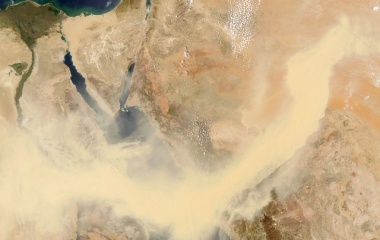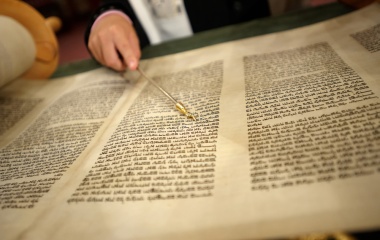
Canada is a wonderful country, and as residents of this country, we are obliged by Torah law to abide by its laws and also pray for its welfare. However, it is not meant to be the home of the Jewish people. Canada is, after all, galut—exile. This is a hard concept for us to truly grasp, in a land with thriving yeshivot, a strong community infrastructure, financial success, and freedom to adhere to our religious beliefs. Yet it is fundamental to Judaism.
The Torah, in Parshat Massei, describes another type of exile, that of the “accidental” manslaughter. Recognizing that there really are no accidents (in rare circumstances when the perpetrator truly is absolutely blameless, he is absolved of responsibility), the Torah tells us that cities of refuge are to be set up “to which a murderer, who killed a person accidentally, can flee” (Bamidbar 35:11). Here, too, for the “murderer”, exile is not so bad. The city of refuge was no different from other cities, and one who was banished there participated fully in city life. The community was even obligated to provide a teacher for the manslayer so that he could grow intellectually and spiritually. The only restriction he faced was not to leave town, a decree that was ignored at risk of his life. It was not until the kohen gadol died that the murderer was allowed to leave town. One never knew how long banishment to a city of refuge would last, just as we are uncertain as to when our exile will end.
It appears that it is precisely the randomness of his stay that fits the crime. The manslayer ended somebody else’s life in a random, arbitrary way. The deceased just happened to be in the wrong place at the wrong time, through no fault of his own. So, too, the manslayer’s fate is determined by events beyond his control.
This, perhaps, is the real punishment of exile. We may be able to thrive in exile, but we are passive players and don’t control our own destinies. Throughout our close-to-2,000 years of exile, our fate has been determined by others; our destiny has not been our own. It is only in the land of Israel that we can make decisions that affect our national identity and character.
Questions of how to run an army, of government policy, of religious coercion, of the operation of hospitals on Shabbat, or of economic policy—not to mention agricultural laws—are not germane to us, who lead our lives as individual Jews here in the Diaspora. Full implementation of the Torah can only occur in the Land of Israel. And it is only when we set up a state based on Torah values, a state that will reflect ethics and morals at its highest levels, that we can be a light to the nations.
By choosing to remain in exile, we are effectively rejecting large chunks of our Torah. It is for this reason that G-d was so angry with the Jewish people for listening to the meraglim and rejecting the land of Israel. The fact that we may not recognize our truncated existence just compounds the tragedy.
Sefer Bamidbar tells a tragic story; what was meant to be a short sojourn in the desert turned into forty long years of aimless wandering. Every crisis was met by calls to return to Egypt. But the book concludes with the mitzvah “to inherit the land and live in it”, and the last verses detail the laws regarding the daughters of Zelofchad, who so fervently yearned to have a portion of the Land of Israel.
The roots of our exile began on Tisha B’Av, when the Jewish people did not rise to the challenge of settling the Land of Israel. It is up to us, who don’t have to wait for anybody’s death to leave our self-imposed exile, to demonstrate that the land of Israel is dear to us. When we do so, we can rest assured that we will succeed in implementing Torah in all of its manifestations.



